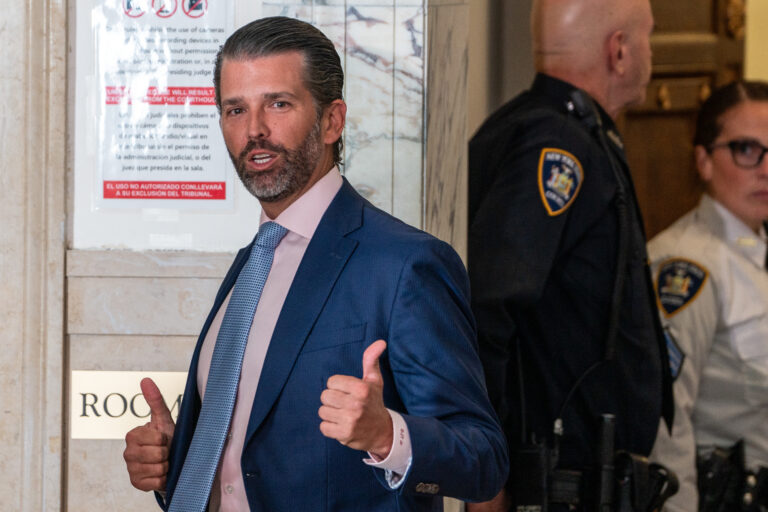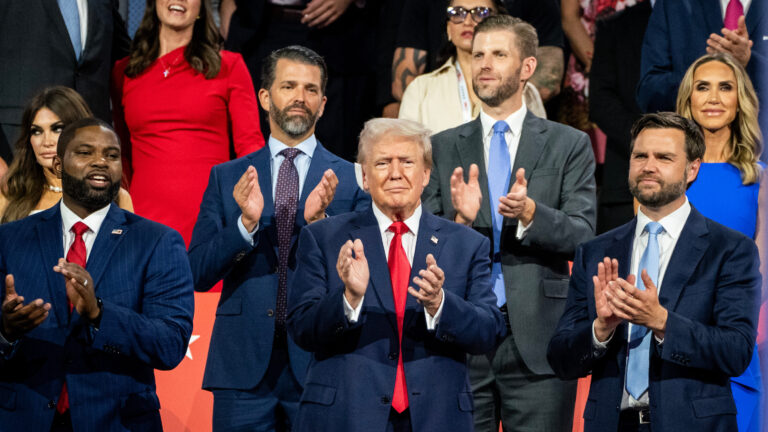The Hook: A Crypto Power Struggle or Political Game?
What happens when a former U.S. president, one of the biggest crypto exchanges, and a decentralized finance (DeFi) project get tangled in a controversy? You get a storm of headlines, accusations, and denials—leaving us wondering what’s real and what’s just noise.
That’s exactly what’s happening right now with World Liberty Financial (WLF)—a Trump-backed DeFi project—and Binance.US, the American arm of the world’s largest crypto exchange. Reports from The Wall Street Journal (WSJ) and Bloomberg suggested that Trump’s family was in talks to buy a stake in Binance.US, but WLF and Binance founder Changpeng Zhao (CZ) have strongly denied these claims. So, what’s going on? Let’s break it down.
The Allegations: What Was Reported?
Two major financial news outlets made serious claims:
- WSJ reported that Trump’s family discussed buying a stake in Binance.US—likely as a way to strengthen the struggling exchange in the U.S.
- Bloomberg claimed that World Liberty Financial (WLF) was also involved in these talks, hinting that Trump’s crypto project might be looking for a major role in Binance.US.
- WSJ also said that CZ had once pushed the Trump administration for a presidential pardon—a claim CZ has denied.
These reports created a media storm, fueling speculation about whether Trump was secretly making moves in crypto and whether Binance was trying to fix its legal troubles.
The Denial: What Did WLF and CZ Say?
As soon as the reports came out, both World Liberty Financial and CZ fired back with strong statements:
- WLF called the articles “politically motivated”, saying the media was trying to damage the crypto industry. It said, “We are just a DeFi project on a mission to democratize finance—nothing more.”
- CZ dismissed WSJ’s report, saying, “Sorry to disappoint, but the WSJ got the facts wrong.” He even called it an “attack” on Trump and crypto in general.
- He also denied Bloomberg’s report, saying, “I/Binance have no business deals with WLF or anyone mentioned in their article.”
- To make it even clearer, CZ emphasized that Binance never bought any WLF coins and had no involvement with the project.
Key Terms You Need to Remember
To fully understand what’s happening here, let’s go over some important crypto and financial terms:
- DeFi (Decentralized Finance): A financial system that removes intermediaries like banks, giving people direct control over their money. WLF claims to be a DeFi project.
- Binance.US: The American branch of Binance, which has faced regulatory issues in the U.S.
- SEC (Securities and Exchange Commission): The U.S. financial watchdog that sued Binance, claiming it violated securities laws—which made Binance’s business in the U.S. difficult.
- Pardon: A legal act where a president forgives someone’s crimes. WSJ suggested CZ wanted Trump to pardon him, but CZ denied this.
Why This Story Matters to You
- Crypto is becoming more political. If Trump’s family is indeed involved in a major crypto project, it could influence U.S. policies on crypto—especially if Trump runs for president again.
- Regulations are still a big threat. Binance’s struggles in the U.S. show how hard it is for crypto companies to operate under strict laws. If Binance needs help from political figures, it means the industry is far from being accepted by regulators.
- Media influence is huge. This story proves that crypto projects are vulnerable to news reports—whether they’re true or not. One article can shake the industry, affecting token prices, public trust, and company strategies.
Final Thoughts: What Should You Take Away from This?
This is not just another crypto news story—it’s a sign of how power, politics, and money are colliding in the digital asset world. Whether or not Trump’s family actually tried to invest in Binance.US, the bigger picture is clear:
- Crypto is now a major battleground for political influence.
- Regulators and big players are still shaping the industry’s future.
- As an investor or enthusiast, you must always question the narratives being pushed in the media.
Stay sharp, stay informed, and always dig deeper into the real story behind the headlines.



